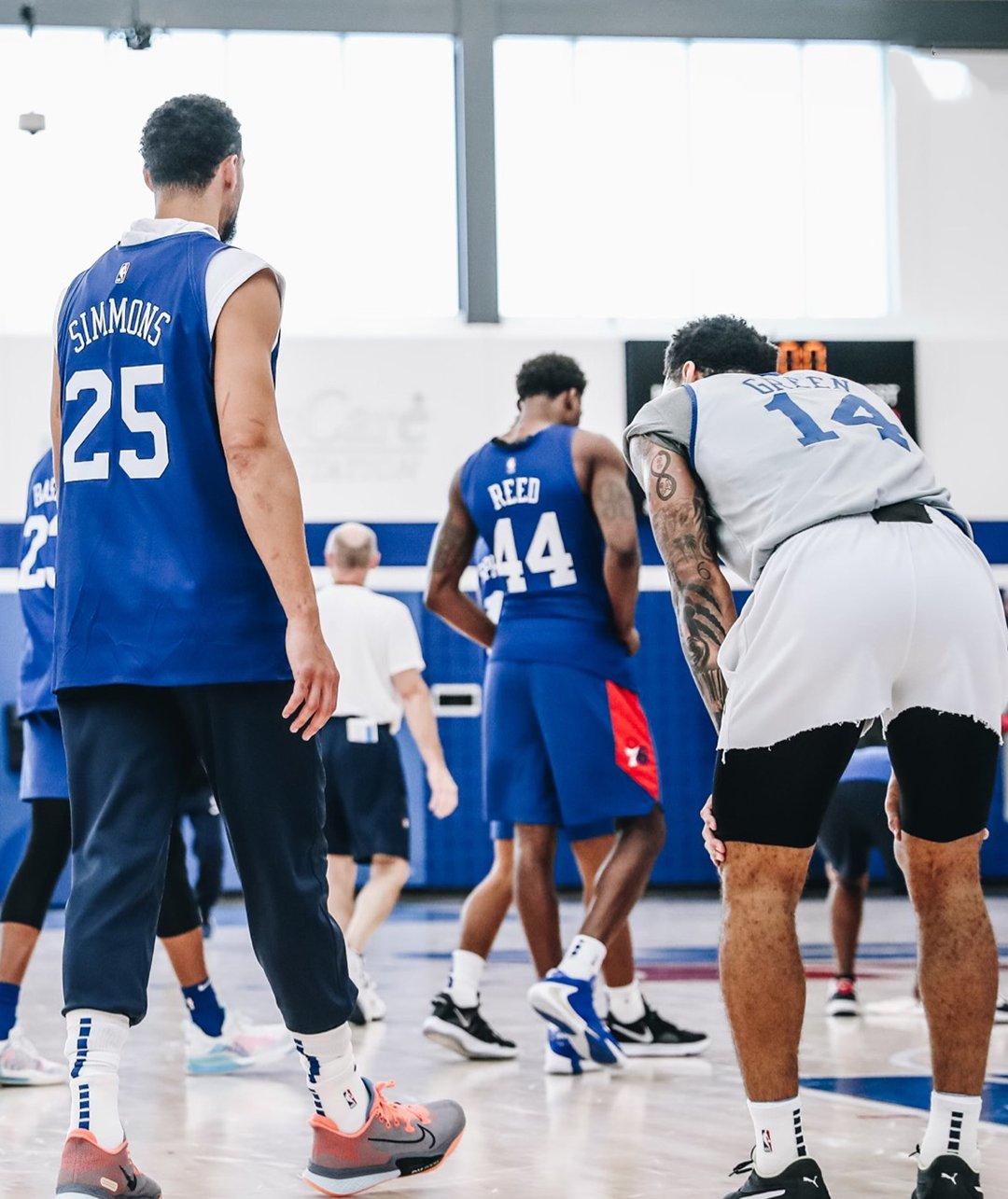
Since there was no solution to the conflict between Simmons and the 76ers, Simmons finally chose to return to the team after a stalemate for an entire offseason. However, for both sides, the problems between each other were not resolved, and Simmons did not express any attitude towards his continued stay in Philadelphia after his return. Today's return is nothing more than Simmons' delay, and at some point in the new season, he will still part ways with the 76ers.
After entering the offseason, Simmons got into a fight with the 76ers management. Dissatisfied with the team's accusations against him in the playoffs, Simmons chose to "isolate" with the 76ers management after the start of the offseason, and not only could not contact him, but even Simmons' teammates could not find any trace of him. However, when the 76ers were looking for communication with Simmons, he appeared frequently in public, which also triggered the dissatisfaction of 76ers fans with Simmons.
In fact, the 76ers management has long been dissatisfied with Simmons' performance in recent years, especially after it was established as the core of the team's tactics, Simmons did not lead the team to the Finals, and the results in the playoffs were not good enough. During the regular season last season, the 76ers tried to trade Simmons for Harden as a trading chip, but eventually gave up due to the Rockets' refusal to trade with the 76ers. Simmons, however, was unhappy with the 76ers' operations, an emotion that has been hanging over him last season.
As for Simmons, he also expressed dissatisfaction with the team's tactical arrangements. Despite his poor shooting ability, Simmons still believes that the team should use him as the tactical core and cover up his shortcomings in shooting through a strong tactical system. The 76ers did try such an adjustment, even allowing Embiid to pull up the outside in place often to make room for Simmons to play offensively. However, such an adjustment did not bring Simmons' progress, and the 76ers' performance has never improved.
For the 76ers, it's not that they don't want to trade Simmons, it's just that they don't have enough suitable trading chips at the moment. Although Simmons's shooting is not good, in the small-ball era, there are still many teams that are optimistic about his organizational ability and misplaced offense, but after a series of operations in the offseason, there are not many trading chips suitable for the 76ers, so the 76ers management has to continue to examine the enforceability of Simmons' trades.
Simmons chose to return to the team before the start of the new season, one is to avoid the team's fines for him, on the other hand, he hopes to use the new season's games to increase his value, only by playing a certain amount of data, will promote the progress of the transaction. After all, the 76ers still have a 4-year, $147 million contract with Simmons, and as long as the 76ers don't let anyone go, Simmons will never go. Under such a premise, Simmons naturally needs to actively adjust the value of his transactions.
As a result, whether it is Simmons or the 76ers, there is no possibility of continued cooperation between the two sides, and even if Simmons plays well in the new season, the 76ers management will trade him out of the team at an appropriate time. Simmons' return now is nothing more than a delay before parting ways with the 76ers.